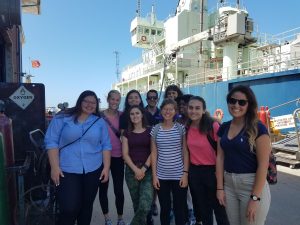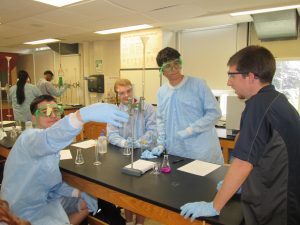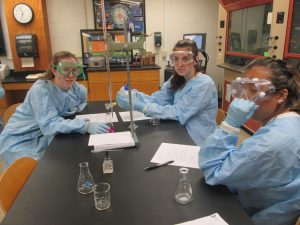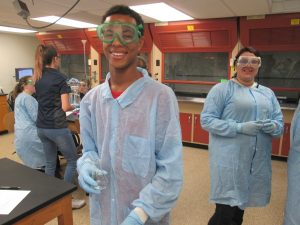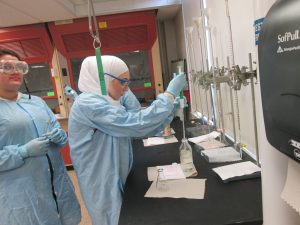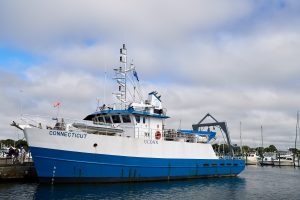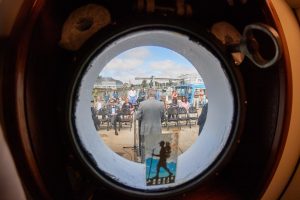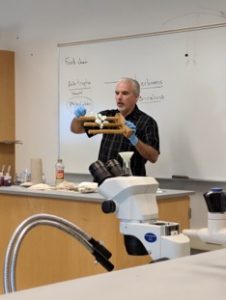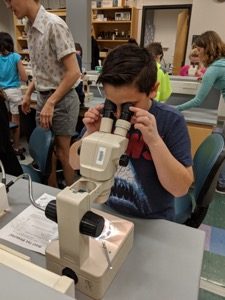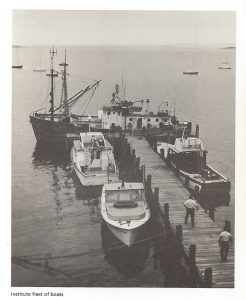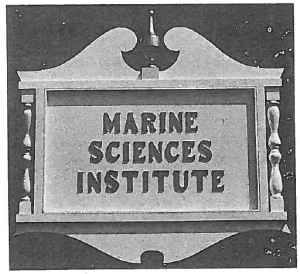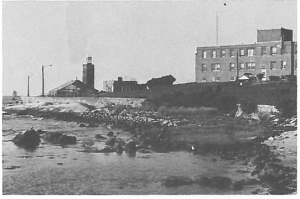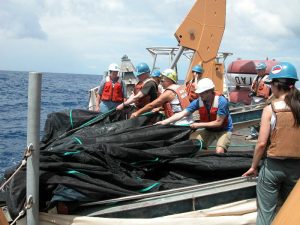| PI Name |
Position |
Funded Project |
Sponsor |
| Vaudrey, Jamie M |
Assistant Professor |
UConn Department of Marine Sciences Technical Support Services in Support of the Designation of a CT NERR |
DOC/NOAA/Oceanic and Atmospheric Research/CT Department of Energy and Environmental Protection |
| Whitney, Michael |
Associate Professor |
Collaborative Research: Mixing of river water into the coastal ocean and the role and structure of the outer edge of the discharge |
NSF/GEO/Directorate for Geosciences |
| Baumann, Zofia A |
Assistant Professor |
Methylmercury and Total Mercury in Antarctic Seawater, Snow and Penguin Tissues |
Korean Federation for Environmental Movement (KFEM)/Citizens’ Institute for Environmental Studies (CIES) |
| Cabaniss, Joseph T |
Marine Operations Manager |
Charter of R/V Connecticut by WHOI for ESP Deployment and Recovery |
DOC/NOAA/National Oceanic and Atmospheric Administration/Woods Hole Oceanographic Institution |
| Lombardo, Kelly |
Assistant Professor |
CAREER: The Response of Coastal Squall Line Dynamics to Climate Change |
NSF/GEO/Directorate for Geosciences |
| Baumann, Hannes |
Assistant Professor |
Assessing Processes that Drive Fisheries Productivity on New England Sand Shoals |
DOC/NOAA/National Ocean Service/DOC/NOAA/Stellwagen Bank National Marine Sanctuary |
| O’Donnell, James |
Professor |
The Development of the Connecticut Connections Coastal Resilience Plan |
HUD/Department of Housing and Urban Development/CT Department of Housing |
| Randolph, Kaylan L |
Assistant Research Scientist |
A Measurement-Based Characterization of the Hyperspectral Reflectance of Breaking Waves, Subsurface Turbulent Kinetic Energy Dissipation Rates, and Air Entrainment as a Function of Physical Forcing |
NASA Ocean Biology and Biogeochemistry |
| Cabaniss, Joseph T |
Marine Operations Manager |
Charter of R/V Connecticut by NOAA to Recover and Deploy Acoustics Recording Units |
DOC/NOAA/National Marine Fisheries Service |
| Cabaniss, Joseph T |
Marine Operations Manager |
Charter of R/V Connecticut by Skidmore College for Equipment Testing |
NASA/National Aeronautics and Space Administration/Skidmore College |
| Matassa, Catherine M |
Assistant Professor |
Identifying the Drivers of Marsh Loss in the Westport River |
Westport River Watershed Alliance (WRWA) |
| Siedlecki, Samantha A |
Assistant Professor |
Enhancement of an Existing Ocean Forecast System to Include Ocean Acidification |
DOC/NOAA/National Oceanic and Atmospheric Administration/University of Washington |
| Siedlecki, Samantha A |
Assistant Professor |
Downscaled Seasonal Forecasts for Living Marine Resource Management off the US West Coast |
DOC/NOAA/Oceanic and Atmospheric Research/University of Washington |
| O’Donnell, James |
Professor |
Municipal Resilience Planning Assistance Project |
HUD/Department of Housing and Urban Development/CT Department of Energy and Environmental Protection |
| Cabaniss, Joseph T |
Marine Operations Manager |
Charter of R/V Connecticut by WHOI for Mooring Recovery Deployment |
NSF/GEO/Directorate for Geosciences/Woods Hole Oceanographic Institution |
| Baumann, Hannes |
Assistant Professor |
Larval Connectivity and Habitat Modeling of Sand Lance on Stellwagen Bank and Nantucket Shoals |
DOC/NOAA/National Oceanic and Atmospheric Administration/Woods Hole Oceanographic Institution |
| Lund, David C |
Associate Professor |
Anomalous submarine volcanism during glacial terminations: Exploring archives from the Global mid-ocean ridge system |
NSF/National Science Foundation |
| Baumann, Zofia A |
Assistant Professor |
Mercury Bioaccumulation in Southeastern Bering Sea |
DOC/NOAA/National Oceanic and Atmospheric Administration/North Pacific Research Board |
| Bucklin, Ann |
Professor |
Ocean Twilight Zone Project: Biodiversity Theme |
TED Conferences/Woods Hole Oceanographic Institution |
| Cabaniss, Joseph T |
Marine Operations Manager |
Charter of R/V Connecticut for WHOI Glider Support |
NSF/National Science Foundation/Woods Hole Oceanographic Institution |
| Siedlecki, Samantha A |
Assistant Professor |
Experiments with Seasonal Forecasts of ocean conditions in the Pacific Northwest to aid the crab fishery |
DOC/NOAA/National Oceanic and Atmospheric Administration/University of Washington |
| Ward, J E |
Professor |
NSF-IOS-BSF: Mediation of Biological Filtration in Marine Suspension Feeders: Significance of Intrinsic and Extrinsic Factors |
NSF/National Science Foundation |
| Dam Guerrero, Hans G |
Professor |
ECHOHAB 2017: Are Growth and Toxicity of the Dinoflagellate Alexandrium Controlled by Grazer-Induced Defense? |
DOC/NOAA/National Ocean Service |
| Cifuentes-Lorenzen, Alejandro |
Postdoctoral Fellow |
Collaborative Research: An Investigation of Energy Exchange Across the Air-Sea Interface in the Presence of Surface Gravity Waters through Measurement of Dissipation, Production, and Transport of TKE |
NSF/GEO/Directorate for Geosciences |
